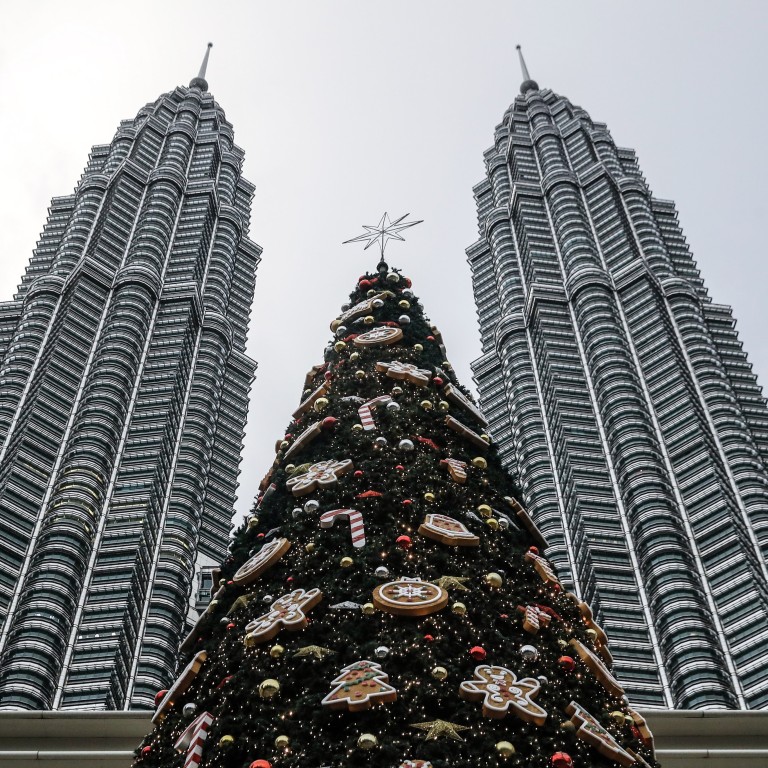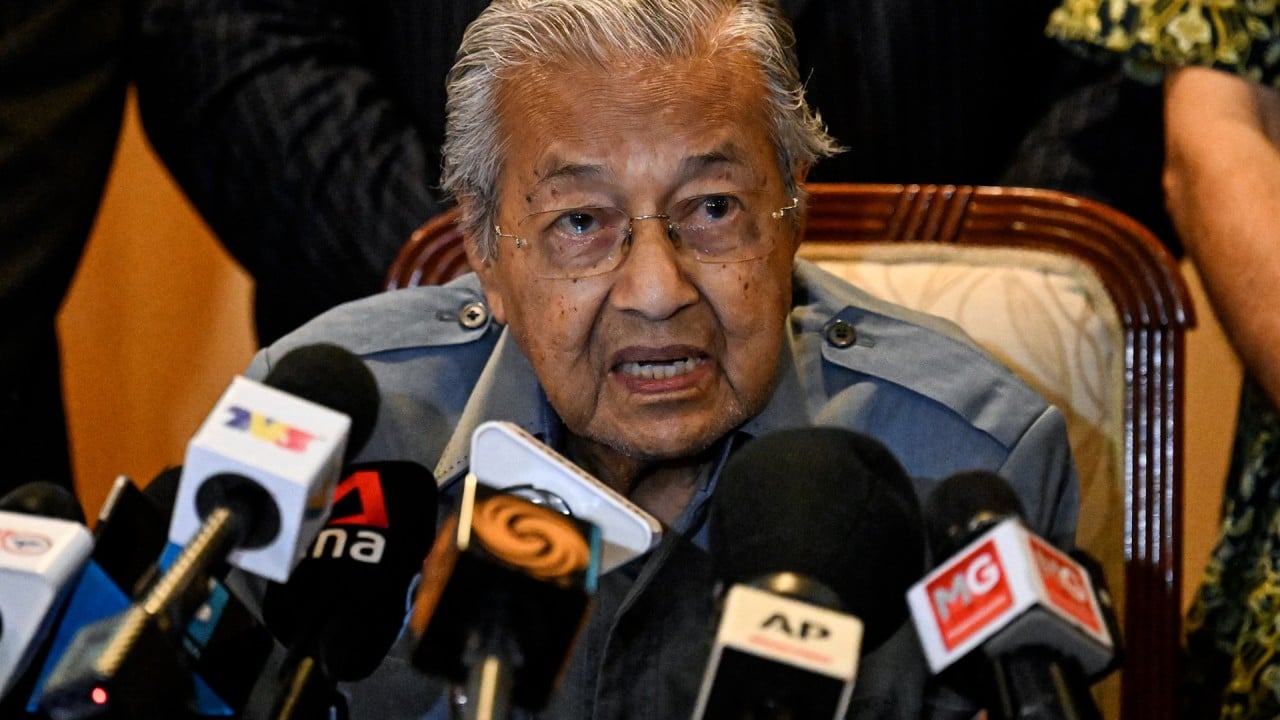
Malaysian row over Christmas greeting on cake leaves sour taste over pivot to conservatism
- The ban imposed by a bakery chain against Christmas greetings on cakes comes amid a spike in Malaysian cultural clashes
- Pandering to the whims of exclusionists prevents them from learning more about their fellow citizens
It was almost comical – a bakery chain banning staff from placing Christmas greetings on their cakes for fear of losing their halal status – but it brought into stark focus the threat of rising conservatism dividing us all, one slice at a time.
It all started last week with a viral social media post of a memo from the company’s management, which said staff were “strictly not allowed” to write “Merry Christmas” or “X’mas” on any cakes they sell, citing rules from the federal religious department overseeing halal certification.
Malaysians quickly hit out at the chain, accusing its management of being racist towards minority groups.

Abang Johari Openg, the premier of Sarawak state and a Muslim, said it was “stupid” and that there was nothing wrong with writing “Merry Christmas” on a cake.
The awkward situation stemmed from a December 2020 ruling by the Malaysian Islamic Development Department (Jakim) prohibiting halal-certified premises from publicly displaying products that bear festive greetings.
Businesses, however, were allowed to write festive greetings on food items like cakes, if they were not put on display shelves.
On Monday, Jakim overturned its 2020 ruling and said it would no longer impose restrictions on halal-certified businesses from writing festive greetings on cakes or similar foods, including those on display.
It all seems a little ridiculous, but it’s far from the first time such cultural clashes have come to the fore in the F&B sector.
Malaysian Islamists say ‘deviant’ Coldplay shouldn’t hold gig given war in Gaza
Just last month, a halal-certified restaurant selling Chinese-style beef roti apologised after a video of one of its staff wearing a cross pendant while preparing food sparked online criticisms.
The restaurant manager told a local Malay daily the worker seen in the video had since been fired and that the incident was an oversight by the management.
Such cultural flare-ups were once a seasonal affair but they’ve become more frequent in recent years amid a rise in religious conservatism, enabled and amplified by social media.
Politics certainly plays a role too. Malay nationalists secured a significant voter base in last year’s national polls, with the Pan-Malaysian Islamic Party (PAS) emerging from the fringes to become the party with the single largest share of seats in the country’s parliament.
Who is PAS, the single biggest party in Malaysia’s new parliament?
Over the past year, Anwar went all out to stop the haemorrhaging support for his ruling coalition government from the Malay-Muslim majority, going on a cross-country Eid tour and hosting popular but controversial clerics such as Muhammad Salah of the United States, Wael Ibrahim from Australia and Zimbabwe’s Ismail Menk.
Malaysia has for years promoted itself to the outside world as a paragon of multiculturalism, a place where communities flourish regardless of their race or religious leanings.
But those efforts happened before the advent of social media, which democratised communication and made it much harder for the government to control the narrative.
Malaysia is not alone in dealing with surging conservatism – just look at what is happening in the US. But as we’ve seen, again and again, pandering to the whims of cultural exclusionists only emboldens them and prevents us all from learning and understanding our fellow citizens, let alone cultures beyond our shores.
Our claims to national unity and regional diversity has, for decades, been used as marketing shtick under the “Malaysia Truly Asia” global tourism campaign.
I wonder if we’ll ever truly be able to live up to that.


